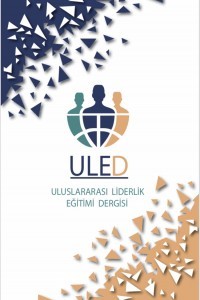The Effect Of Direct And Indirect Written Corrective Feedback On Students’ Writing
WRITTEN CORRECTIVE FEEDBACK
___
- Ashwell, T. (2000). Patterns of teacher response to student writing in a multi-draft composition classroom: Is content feedback followed by form feedback the best method? Journal of Second Language Writing, 9 (3), 227–257 Bitchener, J (2005). The effect of different types of corrective feedback on ESL student writing. Journal of Second Language Writing, 14, 191-205 Bitchener, J., Young, S., & Cameron, D. (2005). The effect of different types of corrective feedback on ESL student writing. Journal of Second Language Writing 18(2), 136-140. Bitchener, J (2008). Evidence in support of written corrective feedback. Journal of Second Language Writing, 17,102-118 Chandler, J. (2000). The efficacy of error correction for improvement in the accuracy of L2 student writing. Paper presented at the AAAL conference, Vancouver, B. C. Chandler, J. (2003). The efficacy of various kinds of error feedback for improvement in the accuracy and fluency of L2 student writing. Journal of Second Language Writing 12(3), 267-296. Ellis, R. (2009). Corrective feedback and teacher development. L2 Journal 1(1), 3-18. Evans, N. W., Harthshorn, K. J., Tuioti, E. A. (2010). Written corrective feedback: Practitioners’ perspectives. International Journal of English Studies, 10(2), 47-77. Ferris, D. R (2002). Treatment of error in second language student writing. Ann Abor: University of Michigan Press. Ferris, D. R. (2006). Does error feedback help student writers? New evidence on the short- and long-term effects of written error correction. In K. Hyland & F. Hyland (Eds.), Perspectives on response. Cambridge: Cambridge University Press Farid, S., Samad A., Effects of different kind of direct feedback on students’ writing. The 8th International Language for Specific Purposes (LSP) Seminar - Aligning Theoretical Knowledge with Professional Practice, 232-239 Kao, C. W. (2013). Effects of focused feedback on the acquisition of two English articles. The Electronic Journal for English as a Second Language 17(1), 1-15. Truscott, J. (2007). The effect of error correction on learners’ ability to write accurately. Journal of Second Language Writing 16(4), 255-272. Van Beuningen, C. (2010). Corrective feedback in L2 writing: Theoretical perspectives, empirical insights and future directions. International Journal of English Studies, 10(2), 1-27.
- ISSN: 2602-3458
- Başlangıç: 2016
- Yayıncı: Süleyman GÖKSOY
Birleştirilmiş Sınıf Uygulaması Olan İlkokullarda Görevli Öğretmenlerin Yaşadığı Sorunlar
Çocukların Hayallerindeki Okul
The Effect Of Direct And Indirect Written Corrective Feedback On Students’ Writing
Aslı Sena GÖKSOY, Özge Pelin NAZLI
Taşımalı İlkokullarda Müdürlerin Karşılaştıkları Sorunların Belirlenmesi
İlkokul 4. Sınıf Öğrencilerinin Görüşlerine Göre İstenmeyen Öğretmen Davranışları
